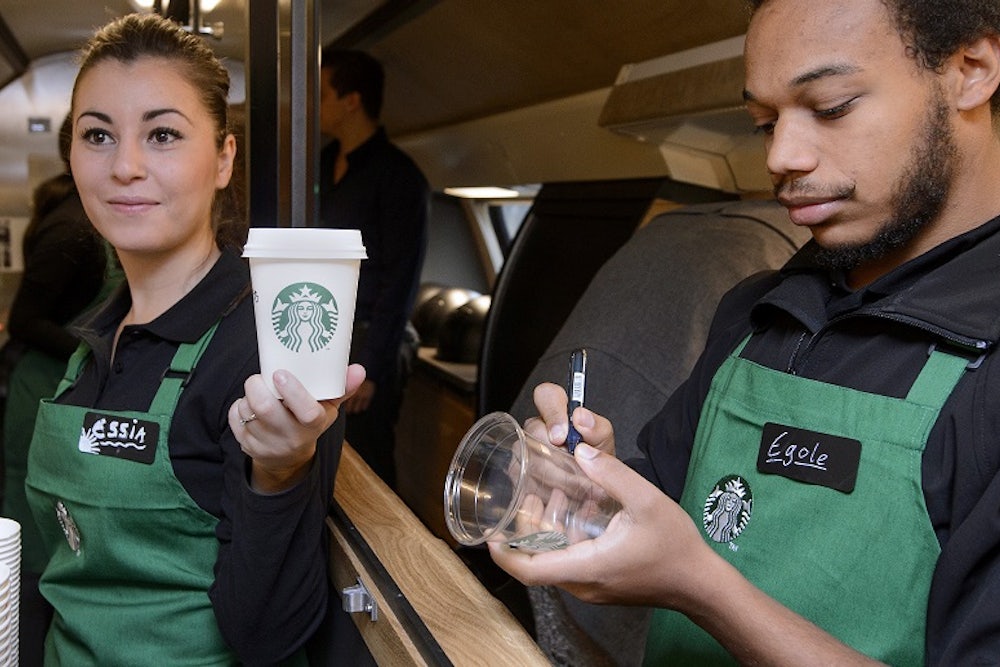In The Atlantic’s May issue, Amanda Ripley, a senior fellow at the Emerson Collective, reports on Starbucks’s partnership with Arizona State University that allows Starbucks employees to receive a significant discount on tuition for online classes. One question that Ripley wonders throughout the article is why Starbucks offered this benefit. It could eventually cost the company tens of millions of dollars a year. Was Starbucks willing to incur those annual costs to give its workers “access to the American dream,” as Schultz said?
Maybe that’s part of it. But Ripley notes one other thing that may have incentivized Starbucks to make this move: Obamacare.
In its first two decades under Schultz’s leadership, Starbucks attracted and retained talent partly by offering unusually generous health insurance and stock options to employees, including ones who worked part-time. But those benefits have become less revolutionary, Schultz said, noting that many Americans have now gained access to health insurance through the Affordable Care Act.
Republicans have frequently argued that President Barack Obama's health care law is a disaster for the economy. There are certainly anecdotal stories of firms having to cut workers hours to avoid the costs. (Although some of those firms have used Obamacare as a convenient excuse for moves they would have had to make anyway.) And last year, the Congressional Budget Office estimated that by 2024, the law will have reduced full-time equivalent employment by 2.5 million workers. Conservatives immediately pointed to the report as evidence that the law hurts the economy. But that's not what CBO said. Instead, CBO said that workers will cut back their hours for two reasons. First, workers may cut back their own hours because Obamacare's benefits discourage work. Second, they may reduce their hours because they no longer need to work to receive health insurance.
Starbucks's new program is, in part, a response to that latter reason. Obamacare has made Starbucks workers less dependent on their employer for health insurance, forcing Schultz to find other ways to entice new workers to join the company and to retain its current employees. This is undoubtedly a good thing. Not only is Obamacare giving workers more power, but Starbucks's reaction—by creating a program to help with tuition—will lead to a better educated workforce. That's good for the economy, too. Just don’t expect Republicans to acknowledge that anytime soon.
